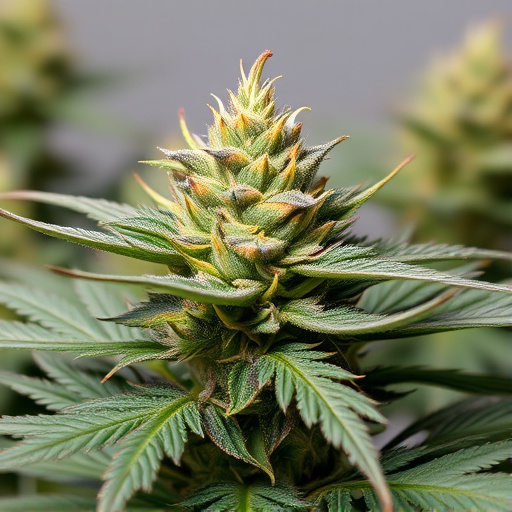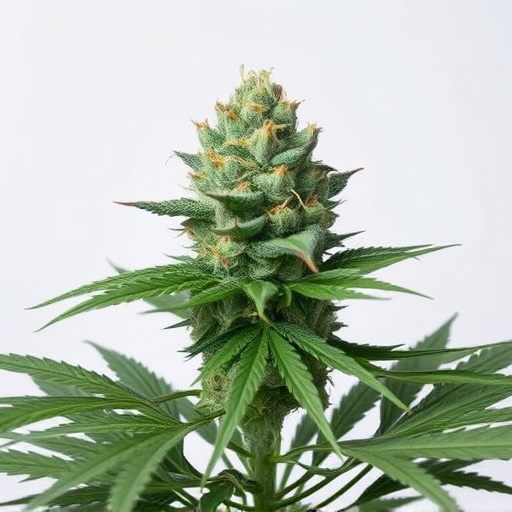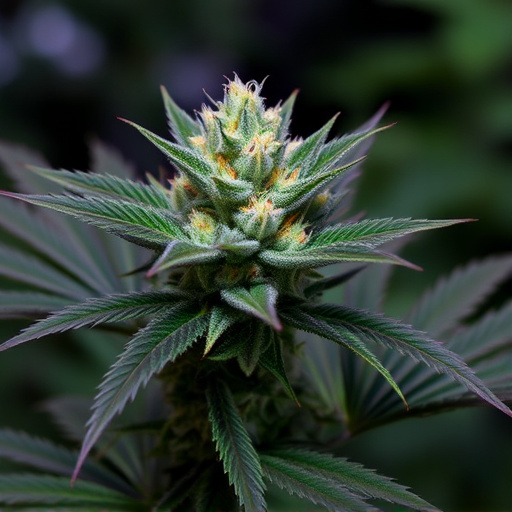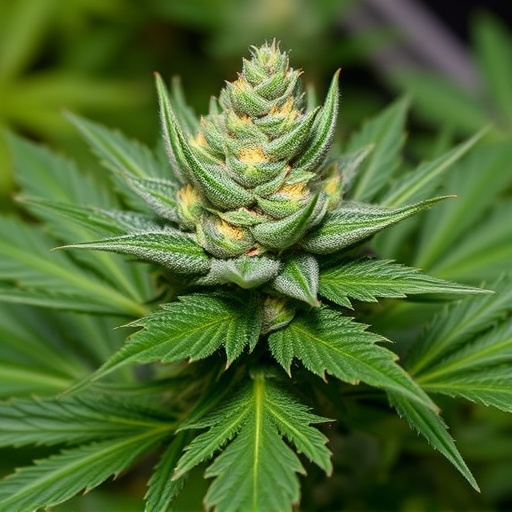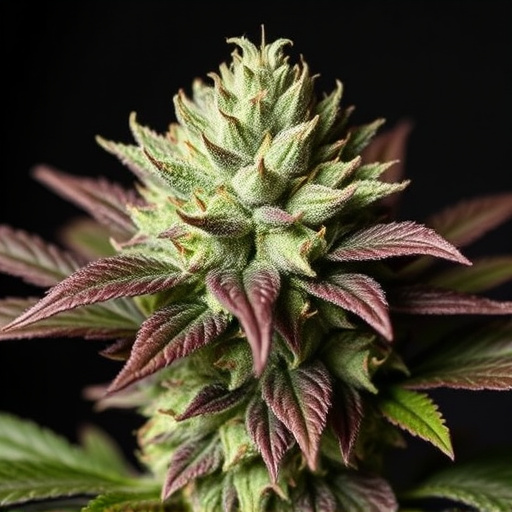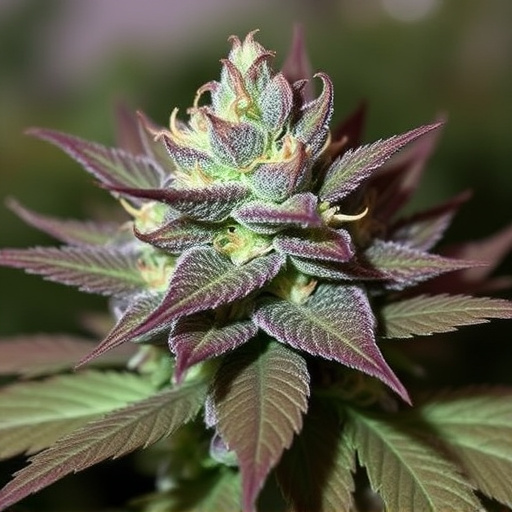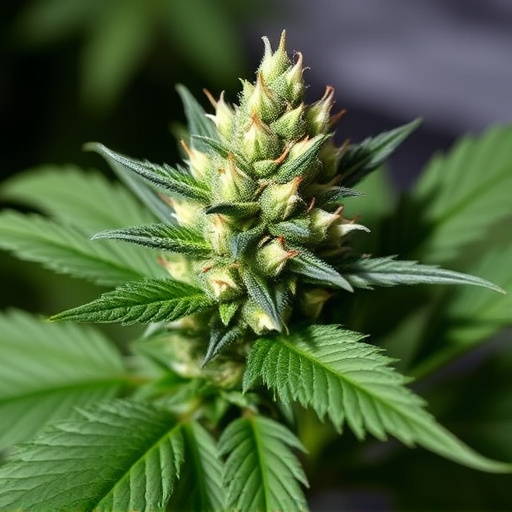“Unraveling the complex interplay between genetics, environment, and personal biology is key to understanding the diverse effects of cannabis, especially within the sought-after category of best kush strains. This article explores the multifaceted factors that shape the unique experiences users have with these strains. From the intricate chemical composition and terpene profiles that define kush genetics to cultivation practices and individual tolerances, each element contributes to the overall experience. By delving into these aspects, we aim to provide a comprehensive guide to maximizing the potential benefits of best kush strains.”
- Genetic Composition and Terpene Profile: Understanding the Chemical Makeup of Best Kush Strains
- Environmental and Cultivation Factors: How They Shape Cannabis Effects
- Individual Biology and Tolerance: Personalized Experiences with Best Kush Strains
Genetic Composition and Terpene Profile: Understanding the Chemical Makeup of Best Kush Strains
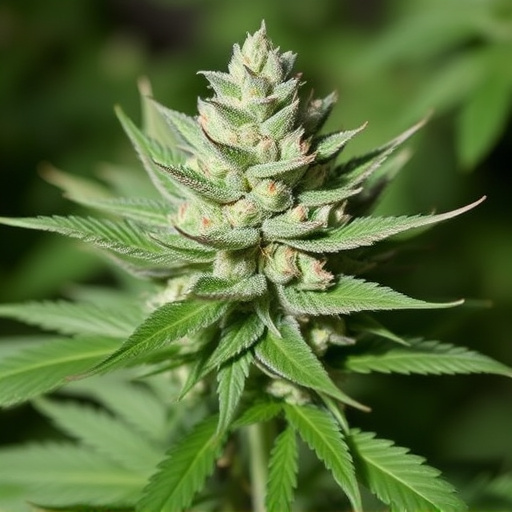
The genetic composition and terpene profile of cannabis plants play a pivotal role in shaping the effects experienced by users, particularly when it comes to renowned best kush strains. Each strain boasts a unique combination of cannabinoids and terpenes that contribute to its distinct aroma, flavor, and potential therapeutic benefits. Terpenes, aromatic compounds responsible for the characteristic scents of different cannabis varieties, also interact with cannabinoids like THC and CBD, influencing their overall impact on the body and mind.
Best kush strains are often celebrated for their rich terpene profiles, which can evoke a range of sensory experiences and perceived effects. For instance, myrcene, a common terpene in many kush strains, is known for its earthiness and musky scent, potentially enhancing relaxation and sleep-inducing properties. Similarly, limonene’s citrusy notes may promote feelings of uplifting happiness and mental clarity. Understanding these chemical nuances allows cannabis enthusiasts and medical professionals to select strains that align with specific desired effects, ensuring a more tailored and personalized experience with best kush strains.
Environmental and Cultivation Factors: How They Shape Cannabis Effects
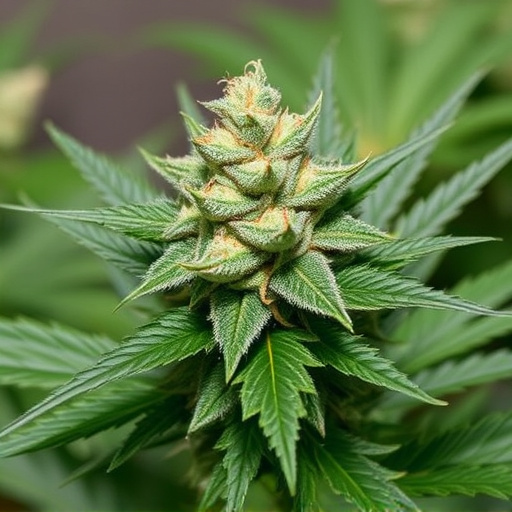
Individual Biology and Tolerance: Personalized Experiences with Best Kush Strains
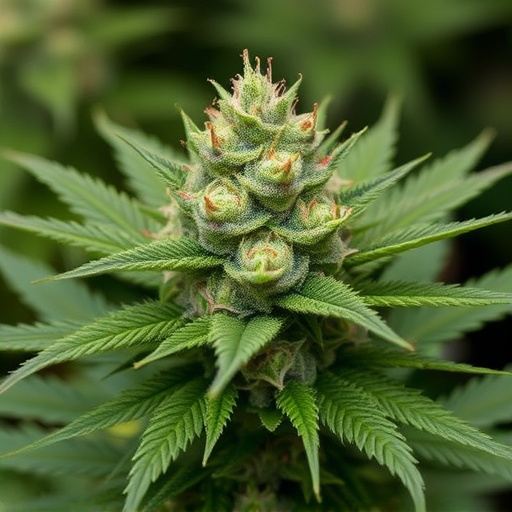
Cannabis effects vary greatly from person to person, and understanding individual biology is key to unlocking personalized experiences with best kush strains. Every person’s endocannabinoid system (ECS) functions differently, affecting how they interact with cannabis compounds like THC and CBD. This system plays a crucial role in regulating mood, memory, pain perception, and inflammation. Genetic predispositions can influence the sensitivity of one’s ECS, leading to varying responses to different kush strains.
Tolerance also plays a significant role. Regular users may build up tolerance to cannabis, which can alter their experience with best kush strains. The specific genetics of each strain, combined with an individual’s unique biology, determine whether they’ll be more suited by indica or sativa strains, or perhaps hybrid varieties that offer balanced effects. Personalized recommendations for the best kush strains thus become possible when these factors are considered.
Understanding the multifaceted factors that influence cannabis effects, as explored through genetic composition, terpenes, environmental cultivation, and individual biology, is key to navigating the diverse experiences offered by best Kush strains. By considering these elements, consumers can personalize their experiences, ensuring they fully appreciate the unique attributes of each strain. This knowledge empowers folks to make informed choices, enhancing both the enjoyment and therapeutic potential of cannabis.




